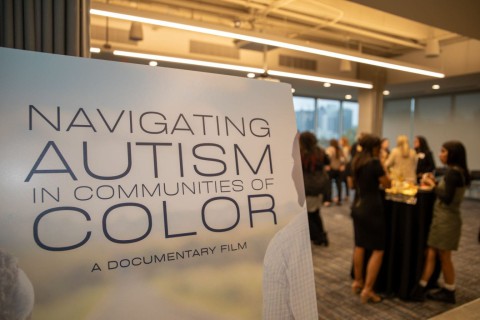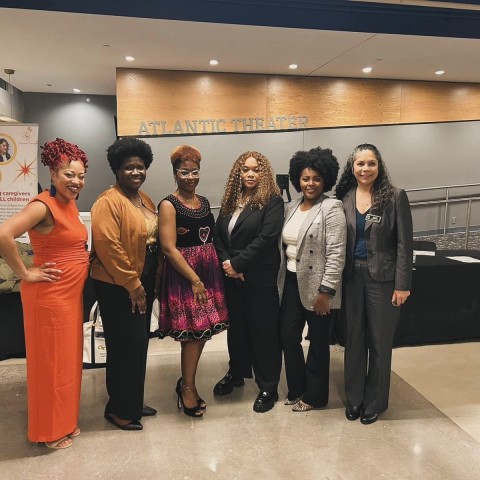


Accessing diagnostics, care, and resources for families raising children with autism is notoriously complicated. According to Jennifer Singh’s 20 years of research, it’s especially challenging for families of color.
“There's an ideology that autism happens predominantly in white boys and that autism doesn't happen in Black communities or Spanish-speaking communities, but it does,” said Singh, an associate professor in the School of History and Sociology. “It might look different and be experienced differently, but it’s there.”
In March, Singh’s research culminated in the premiere of Navigating Autism in Communities of Color, a collaborative documentary about the unique challenges that arise at the intersection of race and autism. Telling the story of six Black families raising autistic children in the Atlanta area, the film has sparked discussions with families and medical professionals alike since its release, highlighting the impact of racial biases on the autistic experience.
Now, Singh and her collaborators are continuing the conversation with virtual screenings, educational events, and film festivals.
“I told people at the screening that this is not the end,” said the documentary’s director John Thornton, director of film and media production in Georgia Tech’s School of Literature, Media, and Communication. “All this is a conversation in a longer conversation of things that can exist.”
Bringing Resources to the Community
To bring the documentary to life, Thornton and Singh partnered with Camille Proctor, founder of the parent-led advocacy organization The Color of Autism Foundation, in 2022. Between Proctor’s expertise in connecting families to trauma-informed, culturally competent support and Singh’s research, the team identified families and healthcare professionals to feature in the film.
After filming and long months of editing in 2023, Navigating Autism premiered on March 22, 2024, at Georgia Tech to over 60 healthcare providers, advocates, and community members from across Atlanta.
“These parents showed how they're making a difference, accepting their children and making the best of it — making a world that's safe and welcoming for them,” said Singh. “It starts in your own home, and that was just so important for people to hear.”
In addition to entering the documentary in local and national film festivals, the team is bringing the film — and key resources — to the community. After screening it for medical and psychology students at Morehouse School of Medicine, they are particularly interested in reaching healthcare providers.
“A lot of medical providers are leaning into the documentary and trying to see how they can encourage a conversation in that space,” said Thornton. “I think that's the part that will make the biggest change.”
Upcoming efforts also include a virtual screening of the documentary with GPB Atlanta and a sensory-friendly family meet-up for families to learn more about available support.
“I knew this was a meaningful story, but I didn't think it was going to make such an immediate impact,” adds Thornton. “It just never dawned on me that people are so hungry for this type of information.”
An Interdisciplinary Idea
Singh has been researching demographic disparities in the autism community for years. Originally focusing on autism through the lens of biology and genetics, she has since shifted to investigating structural inequities in diagnosis and services for under-resourced communities.
“By over-focusing on the science and the genetics,” said Singh, “we tend to obscure the social, cultural, and economic issues that are at stake when it comes to having a child with a disability.”
From creating a map of available autism services in Georgia to co-founding a working group dedicated to promoting equity in autism services, Singh has always been on the hunt for ways to bring her findings to those who need them. After meeting Thornton and partnering with Proctor, the idea to tell the personal stories of real families through a documentary became a reality.
“I wouldn't have had that idea had I not learned from families through my research about the challenges of accessing services among Black families with autistic children,” said Singh.
She emphasized that interdisciplinary initiatives like Navigating Autism — as well as the Neuro Next Initiative, where she is a member of the executive committee — are key to moving the needle on large issues like this.
“There’s a lot of value and importance in working with communities, working across disciplines, and creating something that's bigger than any one person could do.”
Watch the trailer for Navigating Autism in Communities of Color here. Sign up here to receive updates about the project.
Audra Davidson
Research Communications Program Manager
Neuro Next Initiative
